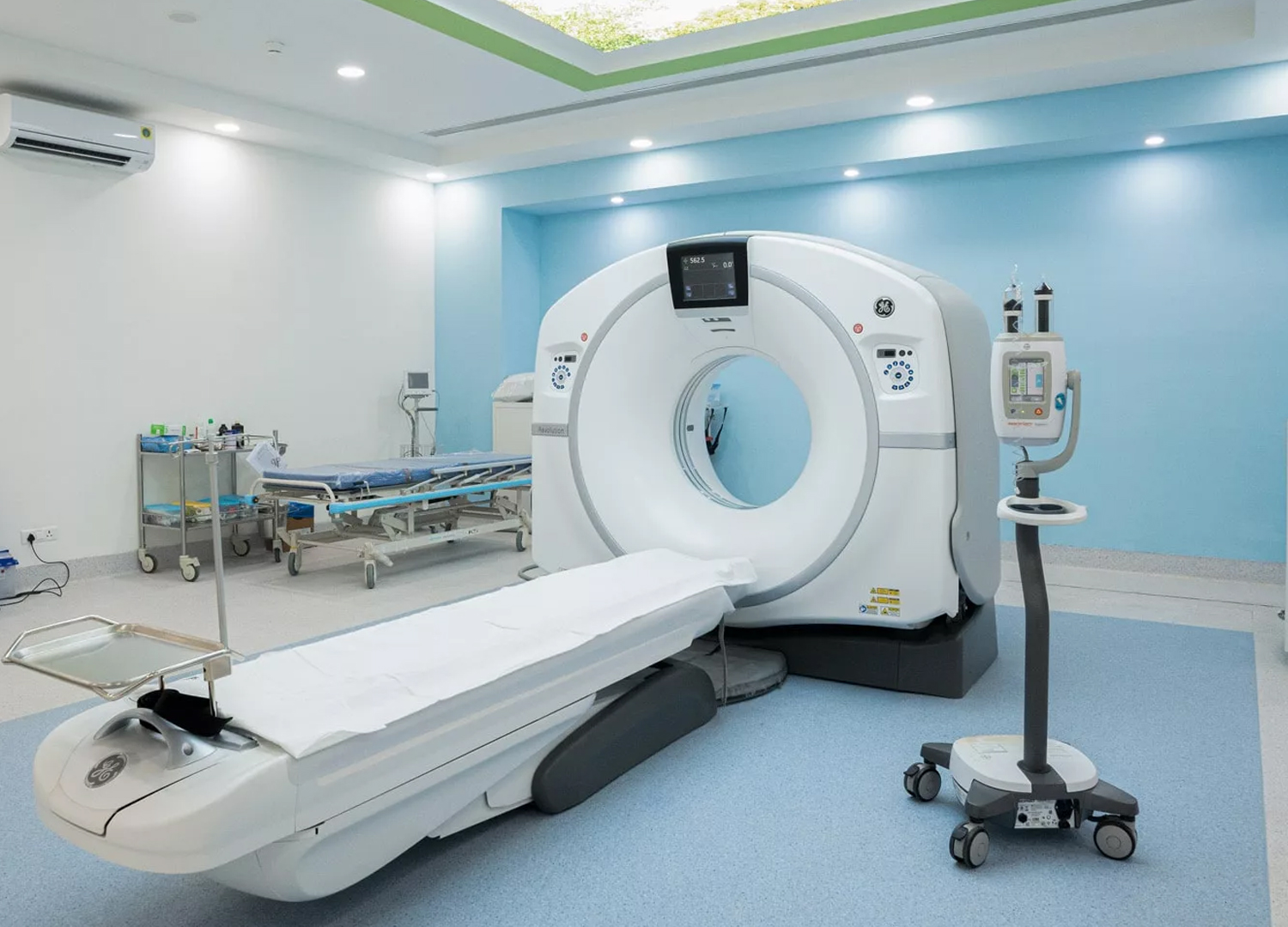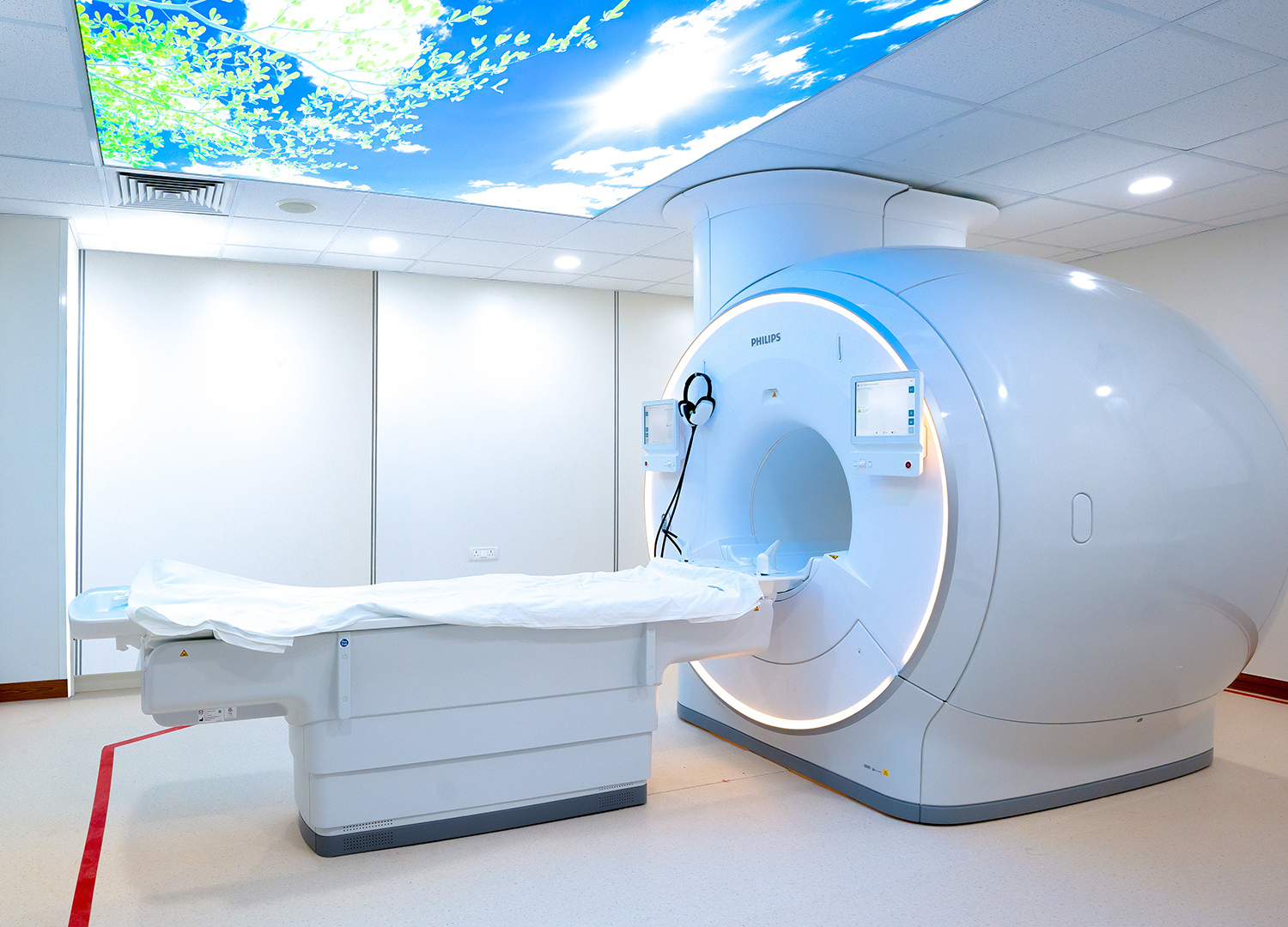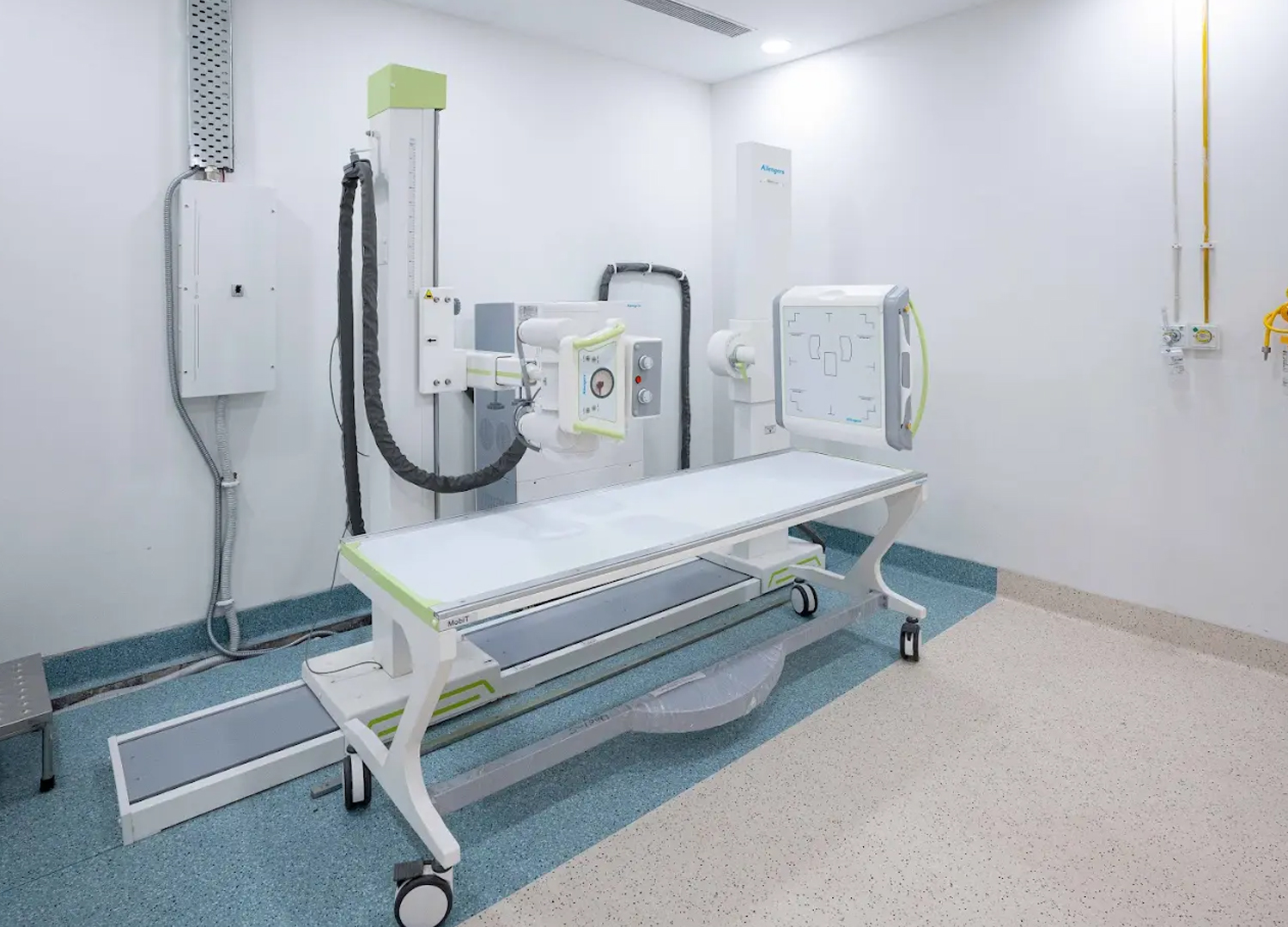Obesity is more than just being overweight—it is a complex health condition that affects physical well-being, mental health, and overall quality of life. For many individuals, losing weight with traditional methods such as dieting and workout may not be enough or not possible due to associated comorbidities (associated illnesses). In such cases, bariatric surgery offers a possible solution. As a bariatric surgery hospital in Dehradun, Graphic Era Hospital offers a spectrum of surgical weight loss solutions designed to address obesity and related conditions. Our experienced team of surgeons, endocrinologists, physicians, nutritionists, and counselors provide personalised care, guiding you every step of the way, helping you regain control of your health, improve mobility, and reduce obesity-related health risks. If you are struggling with obesity, we have got you covered.
What is Bariatric Surgery?
Bariatric surgery, commonly referred to as weight loss surgery, is a specialised surgical intervention designed to help individuals struggling with obesity achieve substantial and sustainable weight reduction. It involves surgical procedures that modify the digestive system to regulate food intake and, in some cases, alter nutrient absorption. These changes lead to effective weight management, helping patients regain control of their health when conventional weight loss methods such as diet and exercise have not provided the desired results.
This surgical approach is not simply about losing excess weight; it is a medically proven solution for managing and even reversing several serious obesity-related health conditions. At Graphic Era Hospital, we recognise that obesity is often associated with complex medical challenges that impact overall well-being. Bariatric surgery plays a crucial role in addressing these health risks, offering patients not just a slimmer physique but a healthier future.
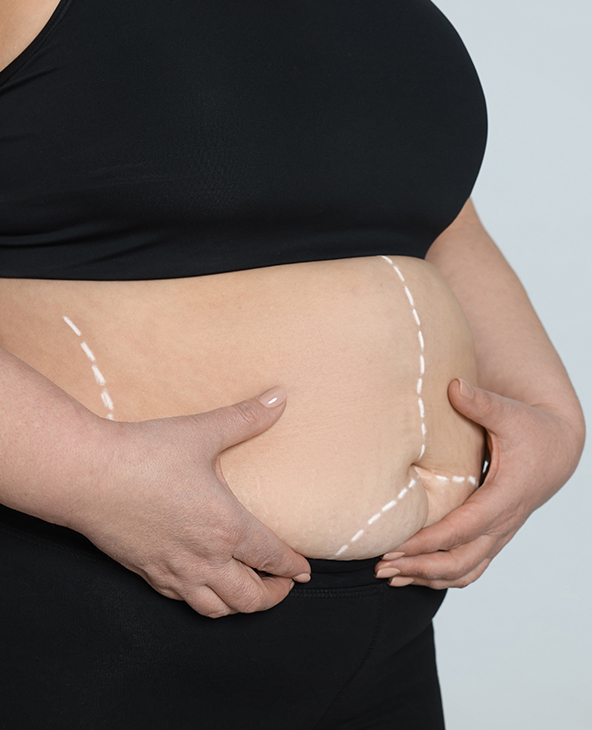
Obesity-Related Health Conditions Managed by Bariatric Surgery
Bariatric surgery has been shown to significantly improve or even resolve several obesity-related conditions, including:
- Type 2 Diabetes: Many patients experience improved blood sugar control after surgery, with some even achieving remission, reducing or eliminating their need for diabetes medications.
- Hypertension (High Blood Pressure): Weight loss and metabolic changes following surgery help lower blood pressure, reducing the risk of heart disease and stroke.
- Sleep Apnoea: Excess weight often leads to airway obstruction, causing sleep disturbances. Bariatric surgery reduces weight, leading to improved breathing and better sleep quality.
- Joint Pain and Mobility Issues: Excessive weight places immense stress on joints, leading to pain and reduced mobility. Significant weight loss after surgery alleviates pressure on the joints, improving movement and overall comfort.
- Heart Disease Risk Factors: Obesity is a major contributor to heart disease, increasing cholesterol levels and leading to cardiovascular complications. Weight loss achieved through surgery lowers these risks and promotes heart health.
A Safe and Long-Term Solution
At Graphic Era Hospital, we are committed to providing safe, effective, and long-term solutions for weight management. As a leading bariatric surgery hospital in Dehradun, we prioritise patient safety by employing advanced surgical techniques, rigorous pre-operative assessments, and comprehensive post-operative care. Our goal is to help patients achieve sustainable weight loss while improving their overall health, enhancing their quality of life, and empowering them to live with renewed confidence and vitality.
Doctors Available
Dr. Dayashankar Rajagopalan
Consultant
GI, MI & Bariatric Surgery
Experience: 12 Years
Book An AppointmentWhy Choose Graphic Era Hospital for Bariatric Surgery?
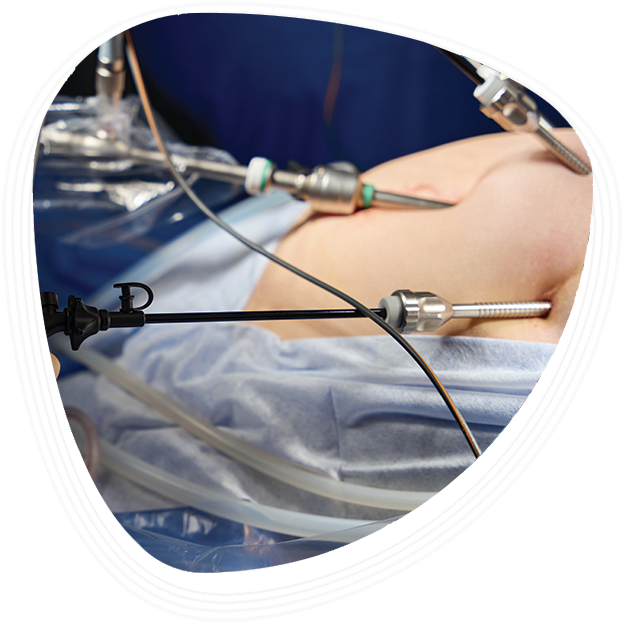
Bariatric Surgery Procedures available at Graphic Era Hospital
Below are the key bariatric surgery options available at our hospital in Dehradun:
1. Sleeve Gastrectomy
Sleeve gastrectomy, also known as gastric sleeve surgery, involves the surgical removal of approximately 75-80% of the stomach, leaving behind a tube-like or "sleeve-shaped" stomach. This significantly reduces the amount of food a person can eat while maintaining normal digestion.
How It Works:
- The stomach is reshaped into a narrow tube, reducing its capacity.
- Levels of ghrelin, the hunger hormone, are drastically lowered, leading to reduced appetite and cravings.
- The digestive process remains intact, ensuring essential nutrients are absorbed.
Benefits:
- Promotes substantial weight loss within the first year after surgery.
- Improves or resolves obesity-related health conditions such as type 2 diabetes, hypertension, and sleep apnoea.
- No foreign objects (like bands) or major rerouting of intestines involved, making it a relatively simpler procedure.
2. Gastric Bypass (Roux-en-Y)
Gastric bypass surgery is one of the most effective and commonly performed weight loss surgeries worldwide. It involves creating a small stomach pouch and bypassing a portion of the small intestine, thereby limiting food intake and reducing calorie absorption.
How It Works:
- A small pouch is created from the stomach and directly connected to the middle portion of the small intestine.
- The rest of the stomach and the upper part of the intestine are bypassed, meaning food does not pass through them.
- The procedure not only limits portion sizes but also reduces calorie and nutrient absorption, promoting faster weight loss.
Benefits:
- Highly effective for long-term weight management, often leading to 60-80% excess weight loss.
- Proven to improve or completely resolve type 2 diabetes by altering gut hormone production.
- Significantly reduces the risk of heart disease, stroke, and high cholesterol.
3. Adjustable Gastric Banding
This minimally invasive procedure involves placing an adjustable silicone band around the upper part of the stomach to create a smaller stomach pouch. This restricts food intake and helps patients feel full with smaller portions. Unlike other bariatric surgeries, the gastric band does not involve cutting or removing parts of the stomach or intestines.
How It Works:
- The adjustable band is placed around the stomach’s upper section.
- It tightens or loosens based on individual weight loss progress and dietary requirements.
- The digestion process remains unchanged, allowing normal absorption of nutrients.
Benefits:
- Less invasive than other bariatric surgeries, leading to faster recovery times.
- The band can be adjusted or removed, providing flexibility based on patient needs.
- Helps patients develop healthier eating habits by encouraging slower eating and smaller portions.
4. Biliopancreatic Diversion with Duodenal Switch (BPD/DS)
Biliopancreatic Diversion with Duodenal Switch (BPD/DS) is a more complex and extensive weight loss surgery that combines stomach reduction with intestinal rerouting. It is recommended for individuals with severe obesity (BMI > 50) or those with metabolic conditions that require significant intervention.
How It Works:
- A large portion of the stomach is removed, similar to a sleeve gastrectomy.
- The small intestine is rearranged, bypassing a significant portion to limit calorie and fat absorption.
- Patients eat less, and the body absorbs fewer calories and nutrients, leading to rapid and sustained weight loss.
Benefits:
- One of the most effective procedures for treating severe obesity and metabolic disorders.
- Offers the highest degree of weight loss, often exceeding 70% of excess body weight.
- Particularly beneficial for patients with type 2 diabetes, high cholesterol, and severe hypertension.
Holistic Care Beyond Surgery
We believe that bariatric surgery is not just about weight loss—it is about transforming lives. That is why we offer comprehensive support to help patients adjust physically and emotionally.
1. Nutritional Guidance
- Patients receive counselling on how to maintain a healthy diet post-surgery
- Focus on balanced nutrition to prevent deficiencies and promote long-term well-being
2. Psychological Support
- Addressing emotional challenges related to weight loss, self-image, and lifestyle changes
- Individual and group therapy sessions to help patients navigate their journey
3. Physiotherapy and Fitness Plans
- Tailored exercise programs to help patients regain strength and mobility
- Safe physical activities to enhance weight loss and overall health
Take the First Step Towards a Healthier You
Weight loss surgery is a major decision, but you do not have to take it alone. At Graphic Era Hospital, we are committed to helping you regain control of your health with expert medical care, advanced surgical techniques, and continuous support. Let us help you start your journey towards a healthier and more fulfilling life. Your health is our priority. Contact Graphic Era Hospital today to learn more about how we can support you on your weight loss journey.
Top Procedures
- Sleeve Gastrectomy
- Gastric Bypass (Roux-en-Y)
- Adjustable Gastric Banding
- Biliopancreatic Diversion with Duodenal Switch (BPD/DS)
- Single-anastomosis duodenal-ileal bypass with sleeve gastrectomy (SADI-S)
- Stomach Intestinal Pylorus Sparing Surgery (SIPS)
Common Conditions Treated by the Bariatric Surgery Department at Graphic Era Hospital
Advanced Diagnostics & Technology
- Offers high-resolution imaging for detailed blood vessel analysis, aiding in accurate diagnosis and treatment planning.
- Delivers advanced imaging with high resolution for clear, detailed views of soft tissues, ensuring precise diagnostics.
- Provides high-quality, detailed radiographic images for accurate diagnosis with minimal exposure to radiation.
Other Specialities
Patient Stories
Blog
Frequently Asked Questions (FAQs)
Who should consider bariatric surgery as a treatment option?
Bariatric surgery is recommended for individuals who:
- Have a Body Mass Index (BMI) of 40 or higher (severe obesity).
- Have a BMI of 35 or higher with obesity-related health conditions such as type 2 diabetes, hypertension, or sleep apnoea.
- Have been unsuccessful in losing weight through diet, exercise, or medication.
- Are committed to making long-term lifestyle changes after surgery.
What are the different types of bariatric surgery available at Graphic Era Hospital?
At Graphic Era Hospital, we offer advanced bariatric procedures in Uttarakhand, including:
- Sleeve Gastrectomy – Reduces stomach size and appetite.
- Gastric Bypass (Roux-en-Y) – Limits food intake and decreases calorie absorption.
- Adjustable Gastric Banding – Uses a band to restrict stomach capacity.
- Biliopancreatic Diversion with Duodenal Switch (BPD/DS) – A more complex procedure for severe obesity and metabolic conditions.
How much weight can I expect to lose after bariatric surgery?
Weight loss varies based on the type of surgery, adherence to lifestyle changes, and individual factors. On average:
- Sleeve Gastrectomy – 50-60% of excess weight loss within 12-18 months.
- Gastric Bypass – 60-80% of excess weight loss within 12-24 months.
- Adjustable Gastric Banding – 40-50% of excess weight loss over time (adjustable based on progress).
- BPD/DS – 70-80% of excess weight loss, with the most significant metabolic improvements.
Is bariatric surgery safe? What are the risks?
Bariatric surgery is generally safe when performed at an advanced medical facility like Graphic Era Hospital, which is a leading bariatric surgery hospital in Dehradun. However, like any surgery, it carries some risks, including:
- Temporary nausea, vomiting, or acid reflux.
- Nutritional deficiencies (managed with supplements and diet adjustments).
- Potential complications such as infection or minor bleeding (rare with modern surgical techniques).
How long is the recovery period after bariatric surgery?
Recovery time depends on the type of procedure performed:
- Minimally invasive procedures (e.g., sleeve gastrectomy, gastric bypass) – Most patients are discharged within 2-3 days and can return to light activities within a week.
- More complex procedures (e.g., BPD/DS) – Recovery may take 2-3 weeks, with gradual reintroduction of solid foods and physical activity.
- Patients must follow a post-surgery diet and attend follow-up appointments to monitor progress and healing.

